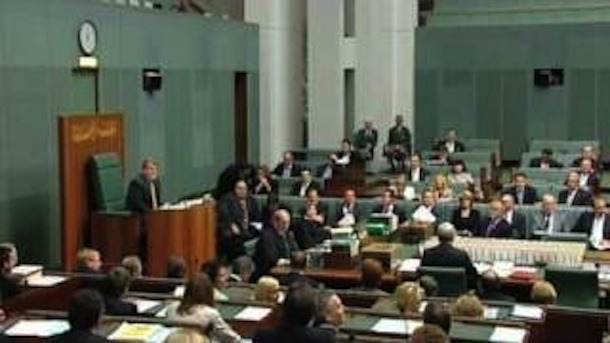By Dennis Glover
On Monday, a special Labor caucus meeting passed perhaps the most significant reform to the party’s rules in its 122-year history, giving members 50 per cent of the vote for the parliamentary leader. The move was inspired by similar changes adopted by the British Labour Party in 1981, but the manner of the changes couldn’t be more different.
In Britain, direct election of the leader came only after a prolonged grassroots uprising led by activists fed up with the party’s leaders failure to adhere to its platform. It came at a heavy price, precipitating a split that kept Labour out of power until 1997. If you want to understand the revolutionary atmosphere in British Labour at that time, type “Labour – the Wilderness Years” into YouTube. Itâ’s like watching a train wreck, but one ultimately with a happy ending.
IN THE NAME OF STABILITY
In contrast, in the Australian Labor Party, direct election of the leader has come without a single fist being raised in anger. It has been imposed from the top down, not the bottom up; not to make recalcitrant leaders easier to remove, but to make them harder to remove; not in the spirit of revolt but in the name of stability.
But is stability really all Labor needs right now?
It is true that democratisation usually comes with unintended and often chaotic consequences. As I have mentioned, in the UK Labour Party it produced a disastrous split; in Egypt it has led to a second revolution. But it can also bring life and hope to corrupt, dysfunctional and declining organisations by flushing out those who refuse to get out of history’s way. The great irony of the hard-left’s campaign to democratise the British Labour Party is that it produced Neil Kinnock and Tony Blair, who together modernised the party and saved it from potential extinction. As it usually does, British Labour’s democratic revolt eventually paid off.
Anyone who doubts that the ALP needs a similar revolt and flushing out hasn’t been watching the internal power-plays of recent weeks. Kevin Rudd has lifted the government from the depths of despair, but in the machine, the despair continues.
Labor members used to get angry watching their factional warlords manipulate the party’s processes, but at least the faction leaders of old occasionally displayed the wisdom and responsibility that engineered good people into Parliament, such as Peter Garrett and Mark Dreyfus.
MEMBERS HELD IN CONTEMPT
But now, watching the warlords at work just breaks members’ hearts. Their exercise of power has become as unwise and irresponsible as it is undemocratic. All pretence that they’re acting in the party’s best interests disappeared long ago. Just take the line-up of candidates they tried to impose on unwilling local branches in Julia Gillard’s seat – a pliable stranger (Lisa Clutterham) and an official of the Health Services Union (Kimberley Kitching). The HSU! That behaviour demonstrates as nothing else could that they now hold the party’s members and supporters in utter contempt. Their language gives them away, resembling that of mafia dons upset that their careful deals to confound the members’ will are no longer being honoured. They just don’t get it, they just don’t care, and some of them are, frankly, stupid. Their enthusiastic public support for Rudd’s party reforms are contradicted by their actual behaviour. They can’t be allowed to own these changes; the members must own them.
Labor may need stability at the top, but at the bottom it needs a membership revolt, as in Britain. Those who think that making simple rule changes, as the party did on Monday, is the end-point of reform, are kidding themselves because it’s almost certain that Machiavellian young senators are already gaming how to exploit the new electoral college to their own factional advantage.
The true significance of the changes Labor introduced lies not in its promise of stability for Kevin Rudd but its promise of democracy for the party. Changing the way the leader is elected must be just the start. Labor reform will succeed only if it can attract new members and embolden the party’s brighter spirits to lead a democratic and philosophical renewal of their party – just like in Britain. Kevin Rudd and the members now have to follow through.

